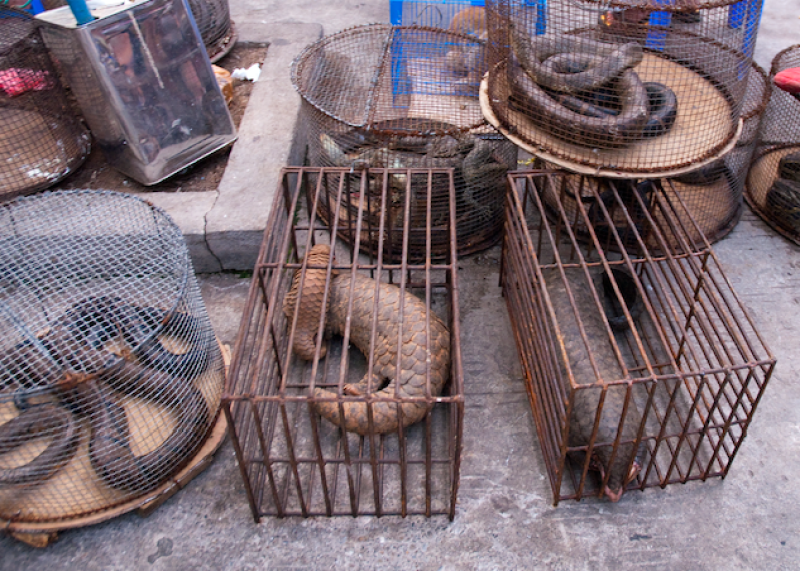The Democratic Alliance for the Betterment of Hong Kong (DAB), a pro-Beijing conservative political party, released a series of 24 proposals for this year to be presented at the annual NPC sessions in March, which included the pangolin ban.
In addition to outright banning the use of those animals in traditional medicine, lawmakers are advocating for increasing “investment in the research and development of pangolin tablets substitutes” and “promoting the protection of pangolin resources.”
“The position taken by China’s lawmakers proposing a ban on the use of pangolins in TCM is an encouraging sign,” said Chris Hamley, Senior Pangolin Campaigner for the Environmental Investigation Agency, a UK-based NGO.
Pangolins, often referred to as “the scaly anteater,” are the only mammals entirely covered in scales. All eight species of pangolin—four are found in Africa and four in Asia—were granted protection under international law in early 2017, according to WildAid, a US-based environmental NGO.
A 2015 report by WildAid found that 70 percent of Chinese citizens surveyed believed pangolin scales could cure rheumatism, skin disorders and infections. They are also thought to cure cancer and arthritis.
China currently permits the legal use of pangolin scales in clinical treatment and in pharmaceutical manufacturing, and they are listed as an official drug in the Chinese Pharmacopoeia, according to WildAid.
The new proposal could have a significant impact on the fate of pangolins, 100,000 of whom are taken from the wild every year across Africa and Asia.
Early last month, authorities in the Malaysian province of Sabah discovered two high-volume facilities containing thousands of boxes of pangolin meat, the biggest such seizure in the country to date.
Also included in the 2019 proposals were a number of other pieces of environmental legislation: strengthening the fight against illegal fishing; banning the trade and use of rhinoceros and its products; improving the system of protected natural lands; and the “protect[ion] [of] animals to promote environmental protection.”






